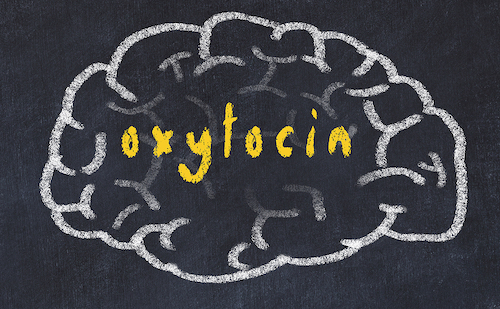December 6, 2022
by Patricia Tomasi

A new study in the Journal of Child Development looked at whether more hours in center-based care cause more externalizing problems. “This study revisits the question of whether increasing a child’s time in center-based care leads to increases in problem behaviors,” study author Catalina Rey-Guerra told us. “We decided to revisit this topic because, for the last four decades, there have been a lot of disagreements around the answer to this question.”
[More]
October 15, 2021
by Tina Arnoldi

Uncertainty motivates people to change behaviors, even when that change may not provide a better outcome. People feel a need to take some action in the face of uncertainty.
[More]
August 30, 2021
by Elizabeth Pratt

The majority of children with attention deficit hyperactive disorder (ADHD) won’t outgrow the disorder.
A study published in the American Journal of Psychiatry found that just 10 percent of children with ADHD will completely outgrow it.
[More]
August 27, 2021
by Elizabeth Pratt

As the COVID-19 pandemic spread across the world, an interesting phenomenon was playing out in grocery stores. Panic buying. As the COVID-19 pandemic spread across the world, an interesting phenomenon was playing out in grocery stores. Panic buying.
Consumers, in the face of increasing uncertainty, began stockpiling in a buying frenzy that left the shelves bare.
Now a study from the University of New South Wales in Sydney, Australia may have an explanation for the behaviour. Unexpected certainty can cause us to change our behavior even if it isn't helpful.
[More]
October 31, 2020
by Elizabeth Pratt

The “love hormone” oxytocin can occasionally have anti-social effects depending on where in the brain it is created.
Oxytocin, a hormone that can regulate prosocial behaviors like trust, bonding and empathy has also been demonstrated to play a role in anti-social behaviors like envy, anxiety and reduction in cooperation.
How the hormone could have such opposing roles has long remained a mystery, but researchers from UC Davis have uncovered how this might happen.
[More]
September 30, 2020
by Elizabeth Pratt

Doing good deeds and being kind to others can be good for health and wellbeing.
Research published by the American Psychological Association found pro-social behavior like acts of kindness and helping others could be beneficial, but not all good deeds could provide equal benefits.
[More]
September 25, 2020
by Elizabeth Pratt

ADHD-like behavior caused by lack of sleep may be beneficial for entrepreneurial activity.
For some people, bad sleep can result in feelings of hyperactivity the following day, along with impulsive behavior and shifting attention spans. These behaviours all resemble those of ADHD.
Now a new study suggests this could lend itself to entrepreneurial behavior.
[More]
September 24, 2019
by Patricia Tomasi

A new study published in the Journal of Child Development looked at whether the age of parents at the time of their children’s birth could result in behavior problems. Couples who have children at later ages are often counselled about risks of increased maternal age (e.g. Down syndrome) but increasingly a risk has been documented for increased paternal age and autism and schizophrenia.
[More]
Through anger management training people learn to recognize and become aware of their anger cues as well as the intensity of stress, irritation, and frustration. They also address the unresolved pain contributing to their anger, as anger tends to anesthetize painful feelings and provides an illusion of control, power, and strength.
[More]
When people think of discipline and children, the two things that instantly come to mind are spanking and timeouts. But the reality is that discipline can be much more than just these two options. There is a whole spectrum of ways to change the behavior of a child without only using punishment as a means to mold it.
[More]